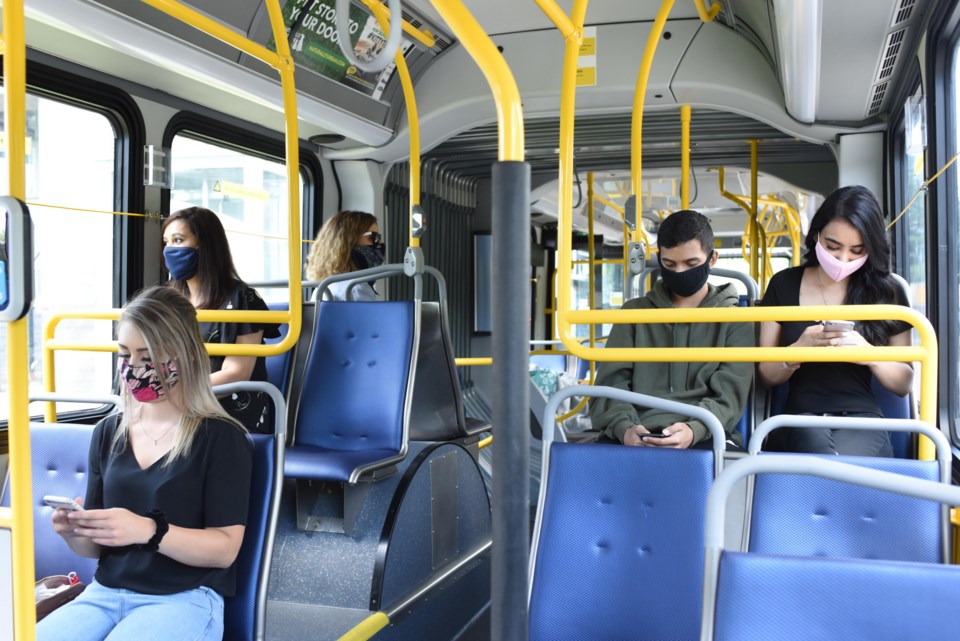Copper's ability to kill bacteria is getting more interest from transit.
It's been found that antimicrobial copper coatings can help kill bacteria on high-touch surfaces, which transit surfaces have plenty of. After a pilot on some Vancouver buses confirmed it kills 99.9 per cent of bacteria, the project is expanding.
"This new round of testing seeks to confirm those results from the first phase in Vancouver by evaluating copper surfaces on more transit vehicles over a longer duration of time across two different regions," states a press release from TransLink.
The other region joining Vancouver is Toronto. Back in November TransLink was the first transit company in North America to pilot the idea.
"For this phase, the medical microbiology teams at Vancouver Coastal Health (VCH) and Mount Sinai Hospital/University Health Network will be undertaking regular bacteria testing, and VCH will be conducting laboratory testing on copper’s ability to kill viruses in addition to bacteria," states the release.
If proven to also limit viruses like the one that causes COVID-19 it could be useful to slow the pandemic.
In Vancouver, there will be three types of copper tried out: functional copper layers, copper alloys and copper decals. They'll be used in buses and SkyTrains throughout the TransLink service area.
VCH's medical microbiology team will lead the study of the microbes, with help from UBC and hospitals in Toronto. The UBC team will also study how the copper holds up to regular use.
“Gaining a better understanding of the effectiveness and feasibility of using copper to kill bacteria on frequently-touched surfaces has implications that are far reaching," says Dr. Marthe Charles, a medical microbiologist with VCH.
The trial, which is funded by mining corporation Teck Resources, will last a year.



